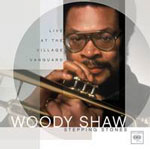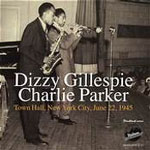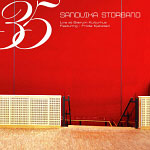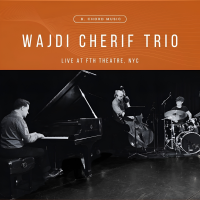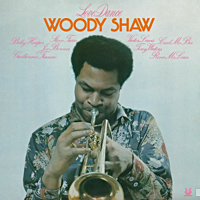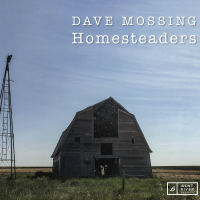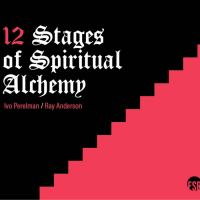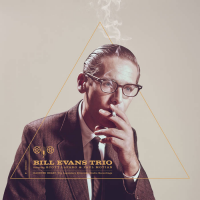Home » Jazz Articles » Album Review » Woody Shaw: Stepping Stones: Live at the Village Vanguard
Woody Shaw: Stepping Stones: Live at the Village Vanguard
It's possible to tell almost immediately whether or not a group has managed to get inside the music, transcending mere method. That may not be something you can easily articulate, but it's something you know. From the opening notes of Columbia/Legacy's reissue of the late trumpeter Woody Shaw's 1978 live recording Stepping Stones: Live at the Village Vanguard, there's the instant ring of truth—here is a group of players who don't just play notes, they mean them.
Hot on the heels of his critically-acclaimed The Moontrane (Muse, 1975), Shaw found himself on a major label with the kind of promotional power that should have led to greater acclaim. Still, his uncompromising devotion to a chosen path contrary to the popular predominance of fusion at that time resulted in a reputation that was greater amongst his fellow musicians than the greater listening public. Sixteen years after his tragic death in 1989, the significance of his potent melodies, bright tone, and incisive improvisational style are finally being recognized, with his blend of change-based writing and open-ended modality resulting in flexible but eminently memorable songs.
Shaw's band at the time—saxophonist Carter Jefferson, pianist Onaje Allan Gumbs, bassist Clint Houston, and drummer Victor Lewis—may be the best working group of his career. With everyone but Jefferson contributing songs to the set, it's clear that this is a cooperative, despite Shaw's name on the marquee. They come charging out of the gate for "Stepping Stone with transcendent intensity. Jefferson is especially notable, combining vivid themes with occasional Coltrane-esque sheets of sound. Shaw's "In a Capricornian Way is a modal waltz that's more slow burn than high heat, the perfect setup for Lewis' equally modal 7/4 workout, "Seventh Avenue.
But with all the energy and pure engagement of songs like Houston's up-tempo swinger "Escape Velocity and Shaw's equally fast-moving "Blues for Ball, it's Gumbs' lyrical "All Things Being Equal Are Not —one of two previously unissued tracks—that's the gem of the set. Shaw—who eschews trumpet on this date for cornet and, on this song, flugelhorn—squeezes pure emotion out of Gumbs' deeply moving ballad. While capable of fleet-fingered runs, Shaw understood the potency of a simple phrase, a well-chosen note, and a perfectly timed trill. Something the entire band clearly understands, making Stepping Stones an album that's more than strong material and imaginative playing. Indeed, it's a deep musical truth that many seek, but few find.
Track Listing
Stepping Stone; In a Capricornian Way; Seventh Avenue; All Things Being Equal Are Not; Escape Velosity; Blues for Ball; Theme for Maxine.
Personnel
Woody Shaw
trumpetWoody Shaw: cornet, flugelhorn; Carter Jefferson: tenor saxophone, soprano saxophone; Onaje Allan Gumbs: piano; Clint Houston: bass; Victor Lewis: drums.
Album information
Title: Stepping Stones: Live at the Village Vanguard | Year Released: 2005 | Record Label: Sony Music
Tags
PREVIOUS / NEXT
Support All About Jazz
 All About Jazz has been a pillar of jazz since 1995, championing it as an art form and, more importantly, supporting the musicians who make it. Our enduring commitment has made "AAJ" one of the most culturally important websites of its kind, read by hundreds of thousands of fans, musicians and industry figures every month.
All About Jazz has been a pillar of jazz since 1995, championing it as an art form and, more importantly, supporting the musicians who make it. Our enduring commitment has made "AAJ" one of the most culturally important websites of its kind, read by hundreds of thousands of fans, musicians and industry figures every month.


